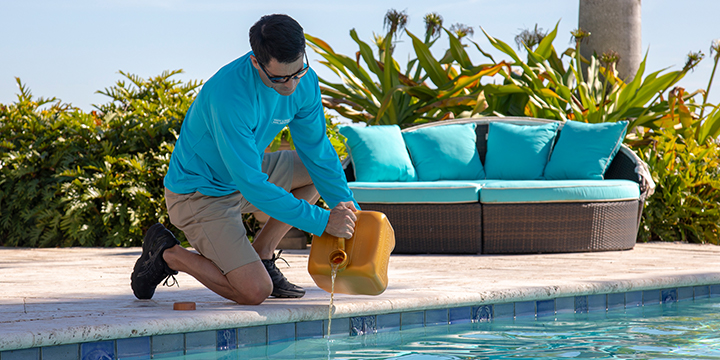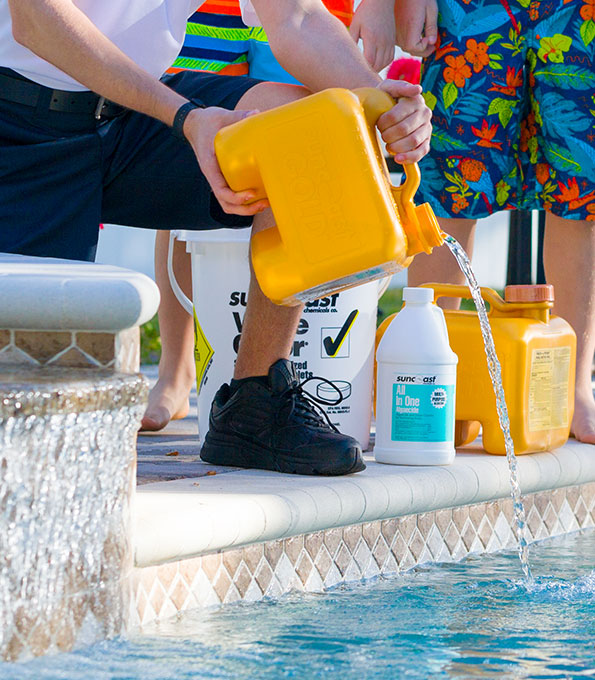What's The Best Way To Keep Your Pool Sanitary?
Chlorine is - clearly!
Chlorine has been the cost-effective swimming pool sanitation method of choice for over 100 years! There are many types, but they all have the same important sanitation properties in common. Chlorine is not only safe; it’s used to sanitize drinking water, it’s also strong. In the right concentrations and correct dosages, it kills harmful germs, contaminants, bacteria and viruses! There are alternatives available, but only chlorine oxidizes while it sanitizes – helping to give you the crystal-clear pool of your dreams!
Why does my pool need chlorine?
Chlorine is the only way to purify your water from daily contaminants like wind, rain, dust and swimmers that introduce germs and algae to your pool. Your pool is said to have a "chlorine residual" when you properly add enough chlorine to the water to kill these harmful contaminants. This is what keeps your pool clean and safe for swimming. When you have had a heavy swimmer load or an unusual amount of rain or wind, it's time to shock your pool. We suggest adding Suncoast Super Shock. This 4-way shock dissolves fast and is perfect for opening a new pool or for regular maintenance throughout the year.
The Benefits of "4-Way Shock" Include:
- kills bacteria
- controls algae
- destroys organic contaminants
- creates crystal-clear sparkling water

How do I test chlorine residual?
Chlorine residual is tested like other water components - with a pool water test kit. Look for test kits that offer readings for Total Available Chlorine (TAC) and Free Available Chlorine (FAC). FAC is the chlorine in your pool that is still ready to work by sanitizing the water and destroying bacteria. TAC is a combination of FAC and chloramines in your water. Chloramines are leftover chlorine that has already done its job killing contaminants and has now become "used" and is no longer effective.
Chloramines cause strong odors, burn eyes when swimming, and irritate the skin. They also keep your FAC from working properly. To prevent high levels of chloramines in your water, use shock on a regular basis. The best time to shock your pool is late afternoon or early evening, running your pumps for at least one hour afterward.
For more details, follow the ABCs of Pool Care.
You must maintain a FAC residual level between 2.0 and 4.0 ppm.
An FAC level of less than 2.0 means you'll soon be dealing with pool algae and bacteria. An FAC level greater than 4.0 means you're spending more than you should on chlorine and could even cause stains.
Is one type of pool chlorine better than another?
Each type has a specific purpose and its own features and benefits, and there are two basic kinds- stabilized and unstabilized. Stabilized is best for daily sanitizing, while unstabilized is best for shocking each week. Both help chlorine last longer in your pool, saving you money! Click here for information on Liquid vs Granular shock.
Share This Post
